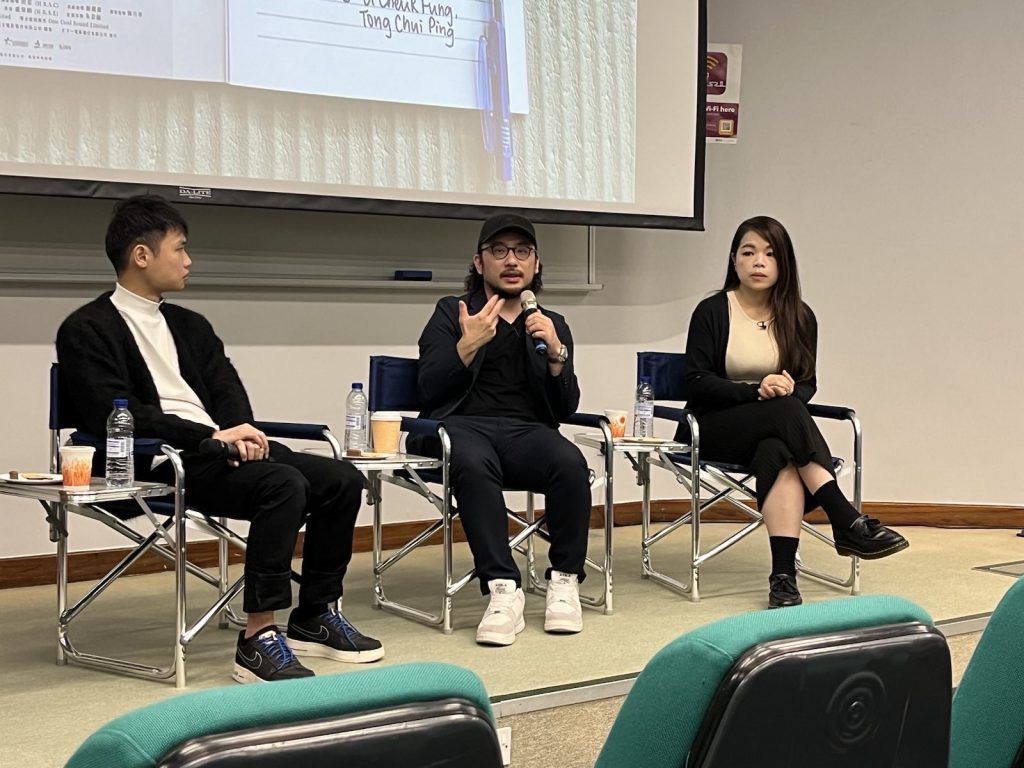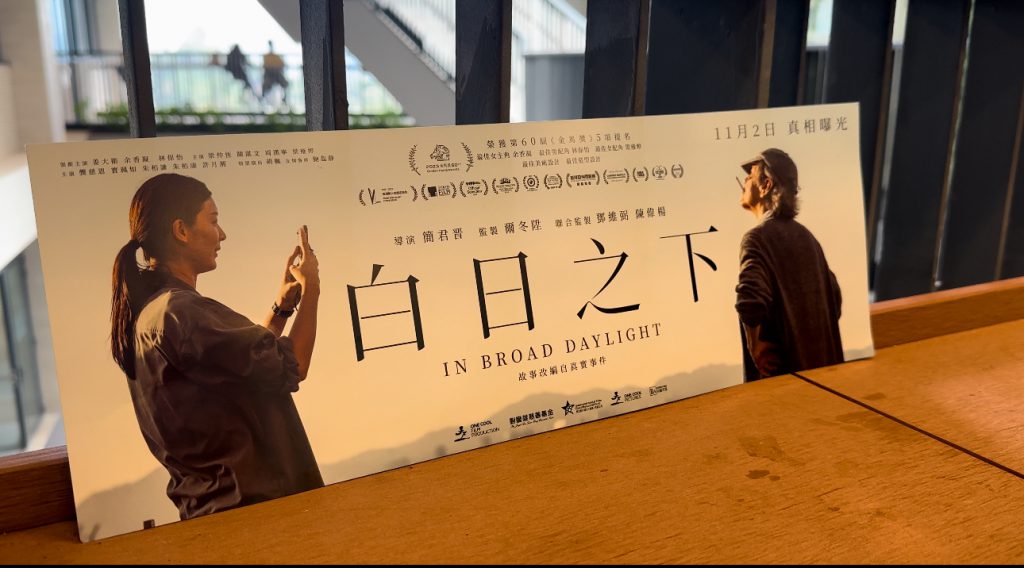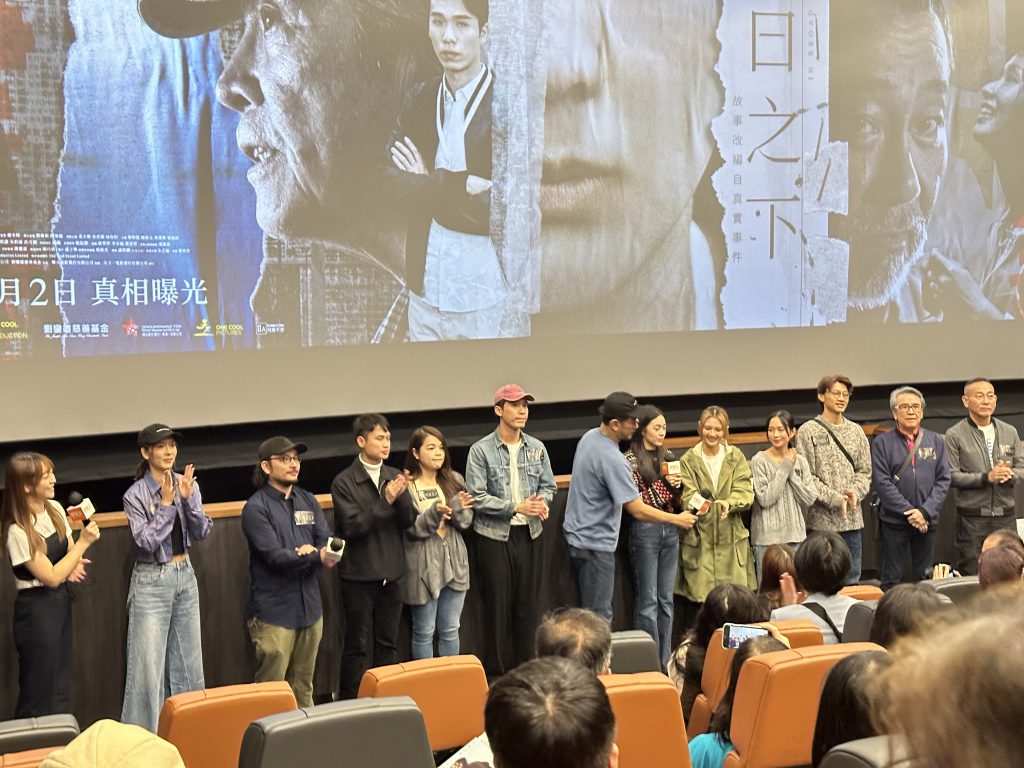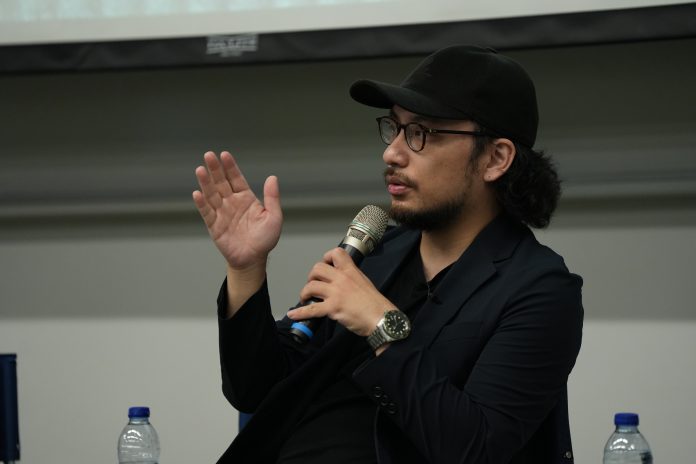The movie director of In Broad Daylight vows to be the voice of the voiceless with his latest production.
By James Cheang
Movie director Lawrence Kan Kwan-chun vows to be the voice of the voiceless with his latest production In Broad Daylight.
“We movie producers, like journalists, may not have the power to change the world. But we can at least arouse public awareness with our works so that more and more people are aware of social issues featured in the film,” Kan says.
Based on true events, the movie is about an investigative journalist who reveals the dark side of a residential care home for the elderly and the mentally disabled.
Speaking at a sharing session hosted by Varsity, the director says that the reason why he and two script writers produced the film is their care for social justice.

Kan thanks the journalists who exposed the abuses in care homes on the residents from 2014 to 2016.
“We only made a movie. Journalists did all the hard work: conducting investigation of abuses in care homes and made great effort to report the truth. We want to remind the public of what happened in Hong Kong, and that is still happening everyday,” the 36-year-old says.
In May 2015, local newspaper Ming Pao Daily ran a front page story disclosing that residents of Tai Po Cambridge Nursing Home were left naked or half-dressed on a roof for up to half an hour before they were taken to shower by care workers.
The Social Welfare Department refused to renew the care home’s licence on May 29, 2015.
In August 2016, another care home, Home of Treasure was found to have tied up some of their residents for a long period.
Snack food, siu mai (a traditional Chinese dumpling deemed poorly nutrient), with rice and vegetables were also said to be the residents’ regular meals.
Also in 2016, the Bridge of Rehabilitation care home was reported to have six cases of unreported deaths in eight months, including the death of a 14-year-old child with autism spectrum disorder, and the deceased was suspected to suffer from abuse.
Separately, the former director of the care home was charged with assaulting a woman with moderate intellectual disability in 2014.
But the Department of Justice withdrew the prosecution because the alleged victim was unsuitable for testimony due to her mental illness after an evaluation by doctors.
“I owe my thanks to the journalists and all the people working on the frontline such as social workers and district councillors. They are the source of my courage when making this movie,” Kan says.
Kan shares that he wants to have more footage about journalists conducting investigations. “But journalists just keep making phone calls and typing on computers when they work most of the time. So there is not much to shoot,” he says.
Kan says that he dramatised the true events a bit in his movie to keep the audience’s attention.

“There is a scene about journalists running to a spot to take photos of a group of elderly in wheelchairs naked and being showered in an open area. But in fact, the journalists knew where and when to go for photo-taking and they did not run,” he explains.
“I think the most difficult part of making this film is that I need to think about how to turn those real stories into a movie. Just like journalists have to think about what information should be put in a news story,” he says.
He stresses that he does not want to appeal to sensation and sufferings of the victims as the selling point of the movie.
“Since my decisions on what to be shown and how to portray the story would affect the public perception of those events, I want to provide the viewers with a better understanding of what actually happened and the feelings of characters as humans,” he adds.
Graduated from the Vancouver Film School in 2009, Kan returned to Hong Kong and made his first film “When C goes with G7” in 2013 and a television drama “In Geek We Trust”, Both talk about the life of information technology employees in 2022.
“I just want to give a pat on the shoulders of those who work in IT industry and journalism and tell them I understand their feelings and comfort them with my work,” he says.
The movie production team began to write the script for In Broad Daylight five years ago.
“During these years, many things happened and there were many changes. We also put all the emotions and feelings in the film,” the director says.
“I was once asked whether it was too late to make the film. My answer was, ‘It is never too late to do so as social issues explored in the film still remain unsolved,’ ” he recalls.
Kan reveals the movie production team had difficulties in finding financial support as investors thought the movie had little commercial value.
“Luckily, Louis Koo Tin-lok and his company One Cool Film Production Limited is willing to support the movie financially,” he adds.
The film has been on screen since November 2, 2023 in Hong Kong. According to the movie production team, the ticket sales of ”In Broad Daylight“ have already exceeded HK $20 million (USD $2,561,706) so far.
“I am so happy to see that the film has been well-received with lots of positive feedback,” Kan says.
The team has conducted a range of sharing sessions at cinemas to thank the audience for their support.

The movie was nominated for a total of five awards at the 60th Golden Horse Awards in Taiwan, including the best leading actress, the best supporting actor, the best supporting actress, the best art direction, and the best makeup and costume design.
Sub-edited by Leopold Chen







































